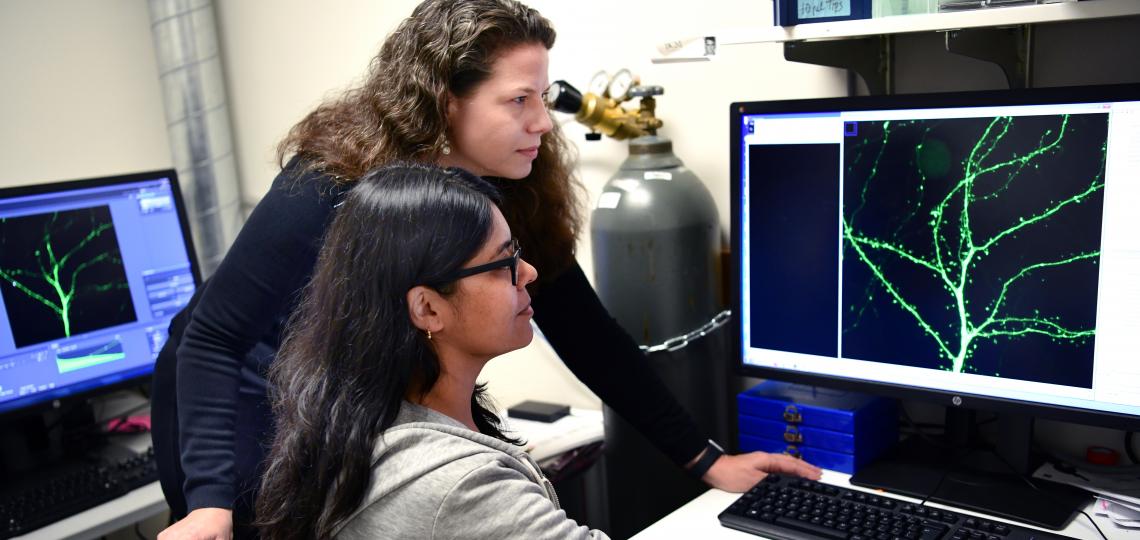
About the Lab
Our brains are comprised of billions of neurons that are interconnected through trillions of synaptic connections. Synapses mediate information flow and storage in our brains, and the elaborate neural circuits they form enable us to feel, move, think, and act. Following development, synapses continue to remodel throughout life, which is important for processes like learning and memory. Given their importance in brain function, it is not surprising that improper synapse development and plasticity have been implicated in a wide range of neurodevelopmental, neuropsychiatric, and neurodegenerative diseases.
Current research in our lab focuses on understanding the molecular and cellular mechanisms that control neural circuit formation and plasticity. We are interested in identifying and elucidating critical signaling pathways that regulate synapse development and remodeling, dendritic arborization and tiling, axonal growth and guidance, and neuronal cell migration.
In addition to investigating how these processes are normally regulated during healthy brain development and function, we examine how defects in these pathways contribute to neurological disorders (e.g., autism spectrum disorder, intellectual disability, bipolar disorder, traumatic brain injury, chronic pain, brain cancer), and whether these pathways can be targeted as effective treatment strategies.
To accomplish these goals, we utilize both in vitro and in vivo rodent models and employ a wide variety of state-of-the-art genetic, molecular, cellular, biochemical, electrophysiological, and behavioral approaches.

Cutting-Edge Imaging
Christopher Cronkite uses cutting edge imaging techniques to study the effects of radiation on dendritic spines.

Fluorescent Constructs Design
Roshni Christo designs fluorescent constructs which allow us to tag individual dendritic spines as they undergo plasticity.

Molecular Genetic Techniques
Francisco Blanco is using state-of-the-art molecular genetic techniques to study learning and memory.








